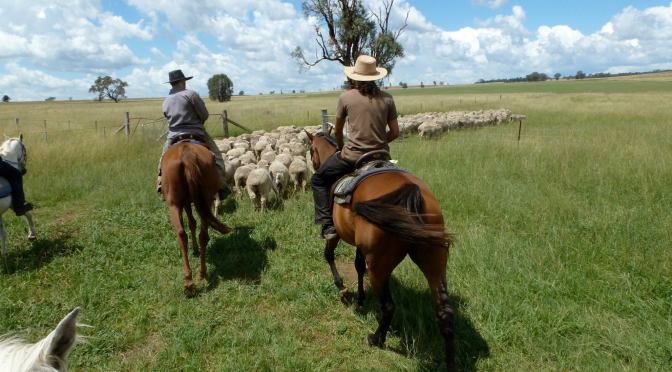
One of my previous posts addressed some of the questions I often get asked about long term travel. In this post, I’d like to address some of the questions and concerns I often hear from folks who want to travel but don’t for certain reasons, particularly money. So if you’re looking to work and travel the world, I hope you will find this article useful.
Do you make enough money to cover your expenses or can you save money as well?
This question often gets asked by folks who kinda want to travel but still believe that the easiest way to travel is to get a job that gives you paid vacation time off. I suppose it’s true, but the only job that ever gave me a paid vacation was teaching ESL in South Korea. The problem with that, however, is that I found it restrictive, despite the comfort of having a steady paycheque arriving either while I was away or when I returned to work. Having money is completely dependent on your spending habits and what you want to do. Yes, you can work, travel and save money. I know quite a few folks who stayed on as ESL teachers in Korea and are marking a decent living for themselves. I met a lot of Irish folks working construction in Australia but living in hostels. Other folks work enough to pay for the next leg of their journey, nomad-style. I believe everybody should put away money for emergencies and not work until their accounts are $0. Accidents happen. But as for this idea of savings, yes, I make more than I spend while working. However, I’ve often taken extended leaves of absence from work which tends to grind down my bank accounts. While travelling I’ve found that I can live on as little as $600 a month (Ukraine), but typically I spend about $1500-$2000 a month travelling through Asia, mostly because I like to try the local liquors and food. Finally, I have a small, but active interest in the stock market funded by my work abroad. Sometimes I can take money out to pay for travels, but not often. Having a small account, I’m more focused on growing that rather than spending it all.
Teaching ESL
A lot of folks see that I’ve travelled quite a bit and wonder how I can do it. Simply put, being a native English speaker with a Canadian passport enables me to work and travel in a lot of places. I didn’t realize how valuable those two things were until I went to South Korea. Now, that’s not to say that non-native English teachers can’t get jobs abroad, there are many different jobs out there, teaching ESL was just my way of getting out of Winnipeg. I found it fun and learned a lot. Although I have little ambition to be a teacher for the rest of my life, it was a good start and certainly a rewarding experience. I encourage anyone who has ever thought about teaching ESL abroad to try it out. Have a go and see what you think. It’s not for everybody but you might enjoy it.
On blogging and making money online
Mr. Tim Ferriss really did a good number on a whole lot of people by publishing his 4-Hour Work Week. And then there’s also Chris Guillebeau who wrote The Art of Non-Conformity. I’ll confess I only read that book recently. It took my an hour in a bookstore in Kuala Lampur. Both books are great for inspiration but the you have to understand that, although some people make money online, it takes A LOT of work. I’ve met a few folks who are making money through their blogs and I can tell you, it’s not that easy. From what I can tell, most of the popular and financially successful bloggers have been at it for at least three years and have published somewhere around 150 articles, many of which are useful to their readers. It’s hard to side-step putting in that amount of time and effort. In addition to writing, there’s finding money-making opportunities (affiliate programs such as Amazon’s and iTunes, ad programs such as Google, direct-sale ads, press trips, etc.) and then organizing all of that onto a website that can be easily searched and viewed on multiple platforms. I have yet to make those work for me since I’m not the most computer savvy guy in the crayon box.
The Immigrant’s Attitude
I happened upon a Zig Ziglar podcast that discussed his encounter with a foreign taxi driver in America. Apparently the guy had moved to America with his wife, worked a few jobs, put themselves through college and were now working on PhDs and even had three children. Ziglar’s point was that in order to succeed you need to develop what immigrants to new countries need to develop: the will and desire to do just about anything to make your dreams come true. I couldn’t agree more. And it’s an attitude sadly lacking in much of the developed world. Take a trip to any developing country and talk to your travel agent. Often they will have other work aside from their travel business, such as mechanic, driver, seamstress, carpenter, etc. They can do many things. They don’t have a choice, they have to be many things in order to succeed in their business. Simply, if you really want to travel but can’t get those very nice jobs where you get paid vacations, you’ll have to change your approach and be willing to do anything to make your dream of travelling come true. Come up with a few plans of action and then see what comes along.
Your career
With the recent Occupy Wall Street protests, financial meltdown, the news reporting daily terrors and acts of God humbling our ambitious building projects, one can’t help but feel a little small. But I can’t help but see that there has been a shift in the workforce. My parents, and probably yours too, could reasonably expect a job once they graduated from university and, what’s more, the company could retain them forever. It was expected you get a job, work for 40 years or so, then do whatever it is you want. That’s not so any more. The internet has made working anywhere and with anyone easier than ever before. Anybody who has problems with globalization doesn’t see huge benefits that the internet brings. As for whether or not your trip abroad will help your career, I often hear two arguments on this. The first argument is put forth by those who haven’t travelled and worked abroad: your potential employer will see gaps in your work history and wonder why. Since I’ve started travelling, I’ve put an extra box at the end of my resume citing all of the places I’ve travelled. E.g.,
Backpacked Europe and southeast Asia various times throughout 2009-2011.
Let’s them know you weren’t sitting at home crying, at least.
The second argument comes from those who’ve travelled: your employer will want to talk about your travels. They might, or they might not care and instead just want someone who’s level-headed and a decent person. Travelling seems to weed out the not so nice folks since much of travelling requires good diplomatic and communication skills. In the end, I don’t think travelling kills or boosts your career as much as people think, but it does help you broaden your mind and develop people skills, which employers like.
A Few Words In Closing
To anyone who is thinking of travelling abroad I’d say go do it. Teaching ESL might not be your gig but there’s probably something out there that’ll catch your eye. I’m currently looking for farm jobs in Australia. I really believe that my generation must develop the “immigrant’s attitude” that Zig Ziglar talks about. Be willing to do just about anything to achieve your goals and your dreams. It might sound pedantic but travel has really made me appreciate living and working a whole lot more. You certainly can’t take much for granted as you simply don’t know what the next moment is going to bring. Even I have to remind myself to step back and just enjoy the moment… and update my blog.
Happy and safe travels!
